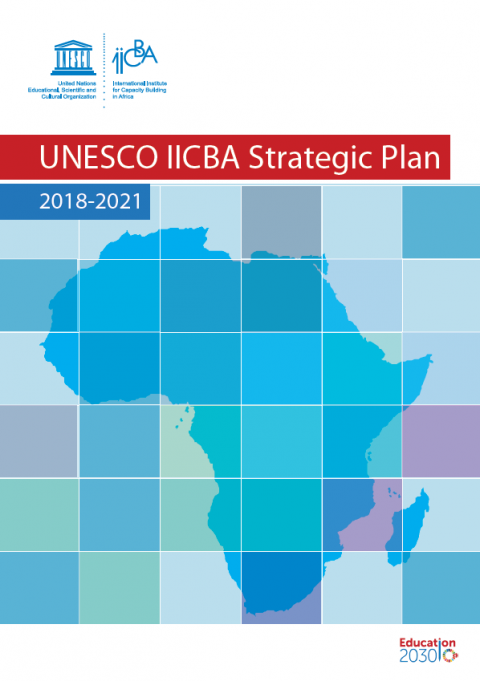
GCED Basic Search Form
Quick Search
You are here
Resources

UNESCO IICBA’s Strategic Plan for 2018-2021 is guided by its mandate and mission to strengthen the capacity of Member States in Africa in teacher policy and development. This work is vital to realizing its vision of an integrated, prosperous and peaceful Africa where everyone has access to qualified, motivated and professionally supported teachers.
This plan is supported by a vision for Strategic Partnerships, because UNESCO IICBA recognizes their value in promoting regional and national cooperation in teacher-related issues, and in fostering dialogue on teachers and education. Strategic partnerships have three objectives:
- Successfully implement UNESCO IICBA’s Strategic Plan 2018-2021
- Ensure the efficiency and effectiveness of resource mobilization
- Strengthen advocacy, cooperation and coordination mechanisms
The Strategic Plan is also supported by a Communication Strategy that covers all of UNESCO IICBA’s programme areas and will support collaboration, coordination and institutional operations. The strategy aims to contribute to effective communication that will:
- Help to fulfill UNESCO IICBA’s strategic goals and objectives
- Amplify the visibility of UNESCO IICBA to its stakeholders
- Inform partners and donors on implementation progress, and demonstrate UNESCO IICBA’s accountability
- Ensure people understand what UNESCO IICBA represents and does
- Improve teachers’ professional image and raise awareness to address teachers’ issues in Africa
- Keep UNESCO IICBA team members proud, motivated, innovative and accountable in their tasks
